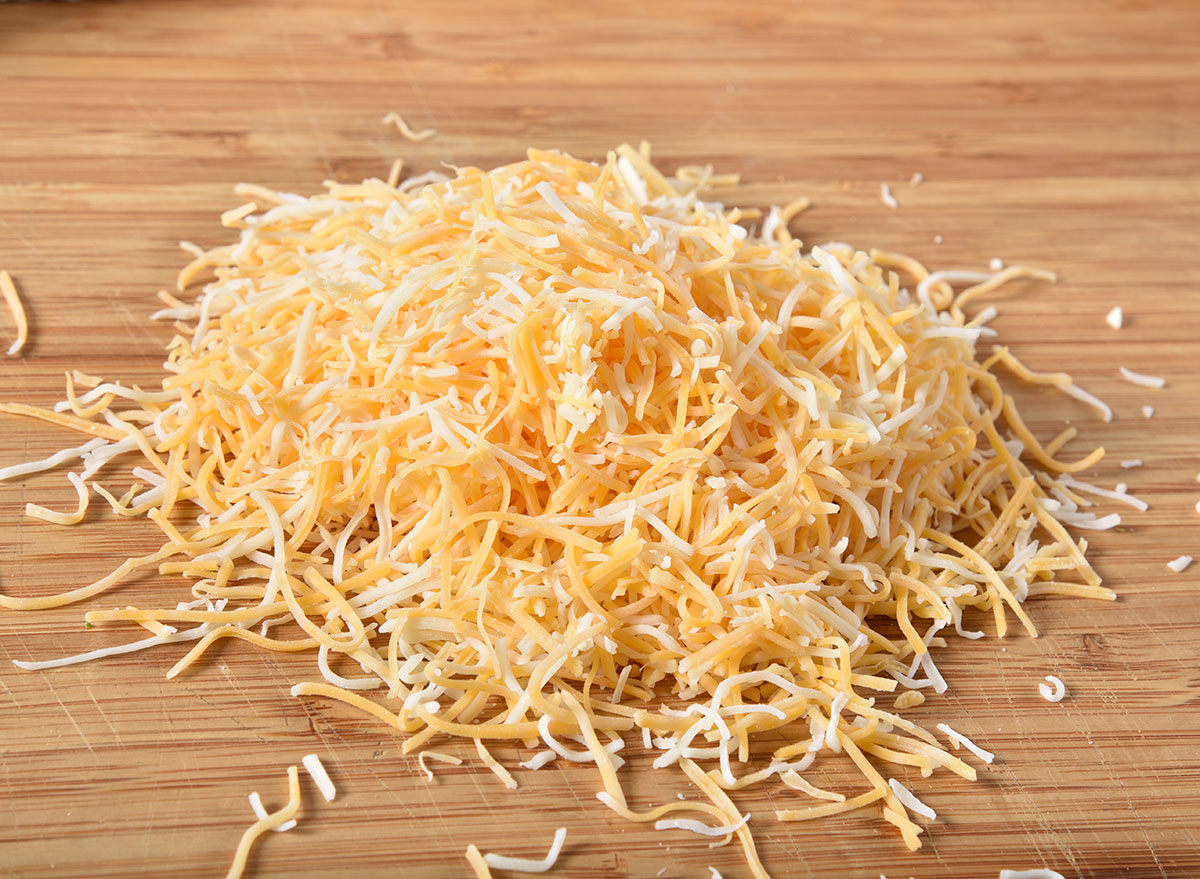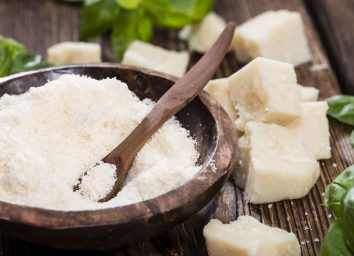The Hidden Ingredient In Shredded Cheese That's Destroying Your Recipes

We get it—shredding cheese from a block is a real pain in the rear. So when a recipe calls for a cup or two of shredded cheese, it seems a lot easier to pick up a bag of it and call it a day. But trust us—that bag of cheese may seem convenient, but it's absolutely destroying your recipes. Why? Because there's a hidden ingredient in it that's causing your recipes to cook very differently.
The secret ingredient in your shredded cheese
Have you ever wondered why the cheese in the bag always comes out beautifully, but when you shred fresh cheese it constantly clumps together? That's because of cellulose. Cellulose is used to coat the shredded cheese in order to keep the cheese from sticking to each other.
If you look at the ingredients on your bag of shredded cheese, you'll probably see cellulose listed on there. The cellulose will dehydrate the moisture out of the shredded cheese to help it last longer and not stick together.
However, there are some shredded cheeses that simply say "anti-caking blend" which is made up of potato starch, cornstarch, calcium sulfate, and natamycin (which prevents your cheese from going moldy quickly). Even if your anti-caking blend doesn't have cellulose, calcium sulfate is clearly used in it, which is actually commonly used to make ground cement and making tiles. Do you really want that in your cheese?
How it differs from a block of cheese
A block of cheese, on the other hand, doesn't have any of these wonky ingredients. It will be made of pasteurized milk, cheese culture, salt, enzymes (used to separate milk into a solid curd), and any other added ingredients for flavor—like red and green jalapeno peppers in a classic block of pepper jack. Next time you're in the store, do an ingredient comparison yourself! Pick up your usual bag of shredded cheese and a block of that same kind of cheese and take a look at the ingredients. Notice any differences?
Yes, it sure is convenient to have a bag of shredded cheese that doesn't stick together and lasts a long time in the fridge, but it's absolutely horrendous for your recipes, simply because of whatever anti-caking agent is used. Here's how to store cheese the proper way.
How shredded cheese ruins recipes
Think about it for a minute: If cellulose (or another anti-caking agent) is used to keep the shredded cheese from sticking together, then wouldn't it be hard for the shredded cheese to melt properly and give you the consistency you desire? That cellulose is going right into your dish, creating an undesirable texture for that cheesy homemade mac & cheese. Instead of being creamy with long stringy pieces of cheese, the texture of your cheese sauce will be separated.
Now obviously not all of your dishes will be ruined because of this anti-caking agent. Shredded cheese is great to have as a topping for some of those quick dishes you make—like classic beef tacos or scrambled eggs. But if you're going to take the time to make a homemade cheesy cauliflower mac or a gorgeous plate of nachos, don't settle for the bagged stuff. Take the time to actually shred a block of cheese so your dish can have that cheesy texture you really want.








